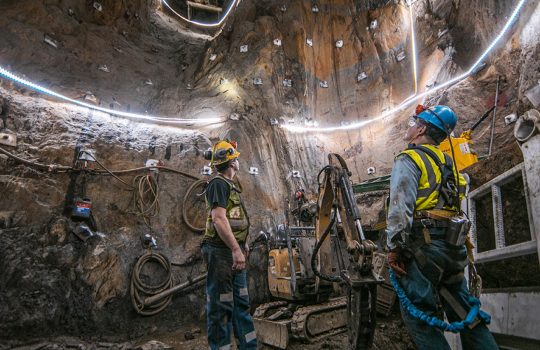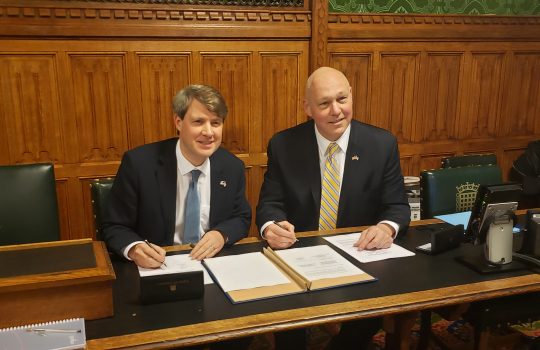Long-Baseline Neutrino Facility releases construction update
- construction
- Deep Underground Neutrino Experiment
- DUNE
- LBNF
- Long-Baseline Neutrino Facility
- neutrino
- Sanford Lab
- Sanford Underground Research Facility
From Tunnels and Tunneling, Feb. 19, 2020: Three of the underground construction components are near completion at the Sanford Underground Research Facility for the far site of Fermilab’s Long-Baseline Neutrino Facility. Work is finishing up on two ore passes that connect the 4850 Level, almost one mile underground, to skips in the Ross Shaft; the Ross Headframe, which must support the skips that bring the rock to the surface; and the tramway tunnel, which will house the conveyor system that will transport excavated rock to its final location.



